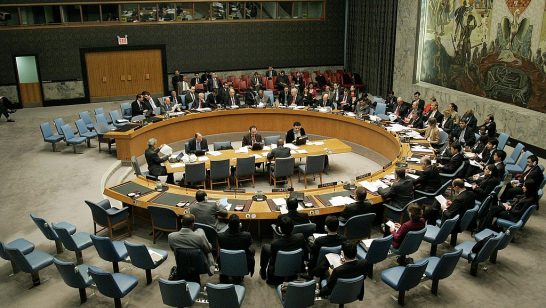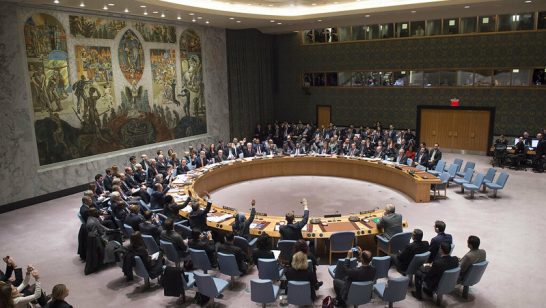What is the Reagan-Gorbachev Formula?
“A nuclear war cannot be won and must never be fought.”
This statement was first made by Presidents Ronald Reagan and Mikhail Gorbachev at their summit in Geneva in 1985.
What was the context?
The statement was part of a larger statement announcing that the countries had agreed an ongoing process of dialogue to reduce nuclear risks and to promote nonproliferation and disarmament.
It paved the way for vital arms control treaties between the two countries, such as the Strategic Arms Reduction Treaty (START) and the Intermediate-range Nuclear Forces (INF) Treaty and so acted as a valuable confidence building measure that helped to produce concrete actions with demonstrable results.
It also sends a clear and powerful message to the public about their governments’ intentions.
Which nuclear states have reaffirmed this principle?
Presidents Biden and Putin reaffirmed the Reagan-Gorbachev statement at their summit in Geneva in June. Presidents Putin and Xi reaffirmed it in a bilateral call and public statement later the same month.
President Macron and Prime Minister Johnson have so far declined to join the US, Russian and Chinese presidents.
Some analysts have also emphasised that a joint declaration including Biden and Xi would be more valuable than the separate declarations between Biden and Putin, and Putin and Xi.
Why have some countries declined to reaffirm the statement?
The UK and France have privately made several arguments against reaffirming the statement. On one hand, some argue that the statement would not bring any demonstrable change to policy: that it is already implicit in policy, so need not be said. Conversely, some have expressed the opposite concern: that it would bring too much uncontrolled change, by generating further pressure on them for nuclear policy changes that they do not have the appetite for.
There have also been criticisms that this statement alone would not be a panacea for all nuclear and strategic risks. A key factor here is the scepticism among the leaders of nuclear-armed states about whether, or how much, they can trust verbal assurances from their adversaries.
This is something on which everyone agrees. With mistrust and tensions between nuclear-armed powers running high, nuclear states are increasing their arsenals rather than making good on their disarmament commitments. Concrete actions on disarmament and risk reduction are needed.
But this is not an argument against making a clear declaration of principle by reaffirming Reagan-Gorbachev. It is, rather, an argument for ensuring that powerful declaratory statements are backed up by concrete actions.
Is this going to change?
Leadership groups, the UN, civil society groups and the wider arms control community have repeatedly called on the P5 to jointly reaffirm the Reagan-Gorbachev formula in advance of the delayed 2020 Nuclear Non-Proliferation Treaty Review Conference.
The NPT itself notes in its preamble “the devastation that would be visited upon all mankind by a nuclear war and the consequent need to make every effort to avert the danger of such a war”. Since several nuclear-armed states are rearming by modernising and expanding their nuclear arsenals, some have called on them to reaffirm their commitment to the principles of the NPT more broadly, including their obligations to pursue multilateral nuclear disarmament.
The fact that the Reagan-Gorbachev formula has been recently reaffirmed in 2020 by Biden and Putin, and then Putin and Xi, seems to create a positive environment for the UK and France to follow suit.
However, there are reports that they are considering a longer variation of the statement with more accompanying caveats. This has raised concerns that the clarity and impact of the original could potentially be diluted, depending on what is said.
What should happen next?
If the P5 reaffirm this statement, it would help to build confidence for future talks on arms control, disarmament, strategic stability and risk reduction.
It would be particularly valuable if the statement is reaffirmed at the level of the P5 heads of state or government, rather than ambassadorial or ministerial level, to match the political commitment shown in 1985 by Reagan and Gorbachev, and in 2021 by Biden, Putin and Xi.
More than most foreign policy and military decisions, nuclear decision-making power is heavily concentrated in the hands of these five powerful men. The words they choose on this extraordinarily important topic are therefore of critical importance.
Such a declaration will be welcomed by many countries around the world. Moving forward, further steps are needed to reduce the risks of nuclear confrontation, from:
- Restoring and extending arms control treaties
- Identifying a clear pathway to implement the P5’s treaty commitments to nuclear disarmament, and,
- Addressing the political tensions between nuclear-armed states.
The opinions articulated above represent the views of the author(s) and do not necessarily reflect the position of the European Leadership Network (ELN) or any of its members. The ELN’s aim is to encourage debates that will help develop Europe’s capacity to address the pressing foreign, defence, and security policy challenges of our time.



